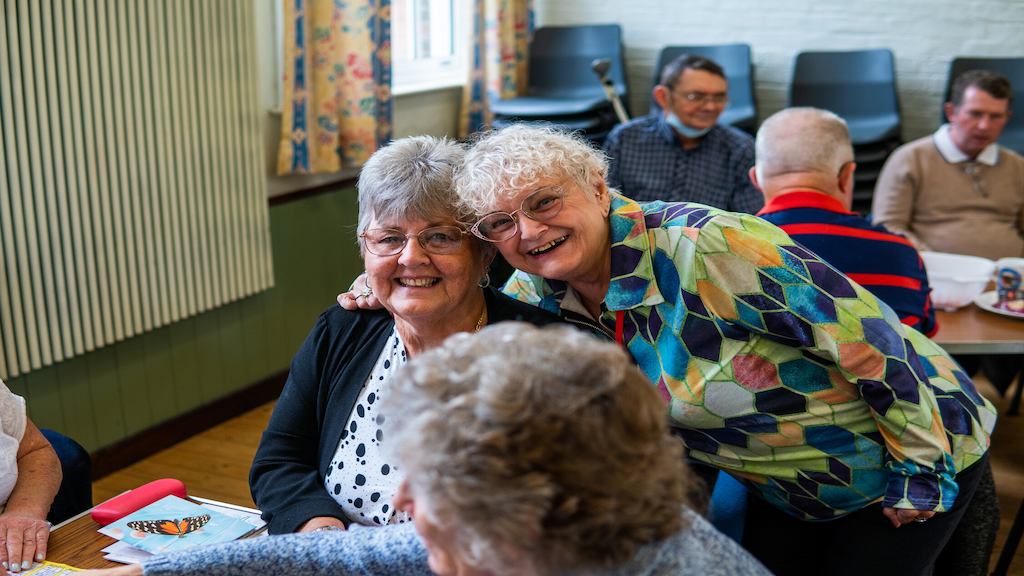Building the UK Network
In 2012, across the pond Manchester was also leading the way in forming a UK Network, teaming up with other early adopters like Leeds, Newcastle, Nottingham, and Belfast. But by 2016, austerity had begun to bite, making it harder to sustain national collaboration as well as local programmes.
The launch of the Centre for Ageing Better provided fresh momentum. I joined Ageing Better in 2016 and we made the decision to affiliate with the WHO in order to provide a more long-term, secretariat role. In 2017 we appointed the first network manager and started mapping age-friendly work across the UK. It quickly revealed a number of communities doing great things — but often in isolation. It was also clear that there was still real appetite to network: people wanted connection, shared learning, and framework that made sense for local authorities and their partners.
Growing Stronger Together
Since then, the UK Network of Age-friendly Communities has gone from strength to strength. When COVID-19 hit, the network responded quickly, hosting weekly online meetings to share updates, ideas, and support. These virtual gatherings became a lifeline — a space for collaboration and encouragement as people worked from bedrooms and dining tables across the country.
Five years on, those weekly meetings are still going strong – and what was once was an average attendance of 20 people now can push 70. The network continues to be a vital platform for sharing knowledge, building commitment, and supporting the age-friendly agenda nationwide. Age-friendly work touches every corner of public policy — from pavements and public spaces to housing, transport, and health. Often, the people leading these programmes are small teams or even lone champions. The network offers them a community, a sounding board, and a source of inspiration.
Celebrating 100 Members
Reaching 100 members is a milestone worth celebrating — and a chance to reflect on what the network has achieved and created together. Our network webpages and resources are increasingly a go-to place not just for network members, but anyone working in their communities with and for older adults.
1. Ideas That Travel
Hundreds of ideas have spread across the UK thanks to the network. One standout is the Take a Seat initiative, originally inspired by New York and adopted by Manchester. The scheme encourages local businesses and community premises to offer a chair to those who need them in order to tackle social isolation and help older people feel more confident about being active in their communities. Nottingham took it further in 2017, partnering with 300 local businesses. Today, over 20 communities run Take a Seat programmes — and interest keeps growing.
Another success is the rise of Age-friendly Ambassadors or Champions: older adults who share messages about ageing well and get involved in local decision-making. Nearly half of UK Network members now have ambassador programmes, with Sunderland and Leeds leading the way (with more than 200 and 300 ambassadors respectively).
2. Relationships That Drive Change
The network has helped local council officers and partners build strong, supportive relationships — and in many cases, collaborate actively. One example is the Age-friendly Northern Ireland Network which was set up after members attended one of the UK Network annual conferences and found inspiration in Greater Manchester’s regional approach. The network brings together councils, Age NI, the Department for Communities, the Commissioner for Older People’s office, and others to tackle issues like housing and transport that go beyond local powers.
